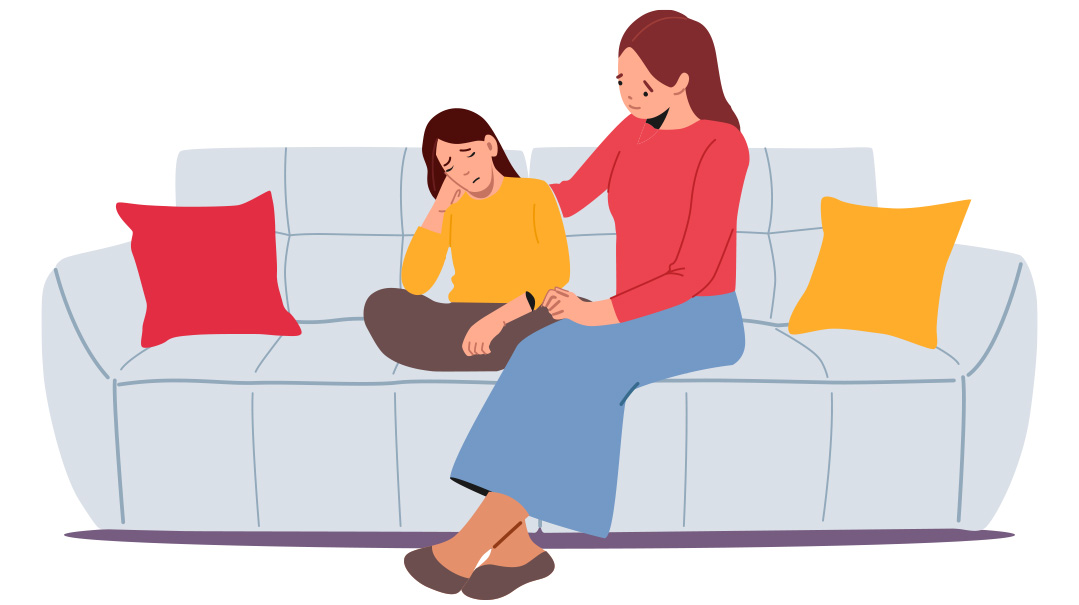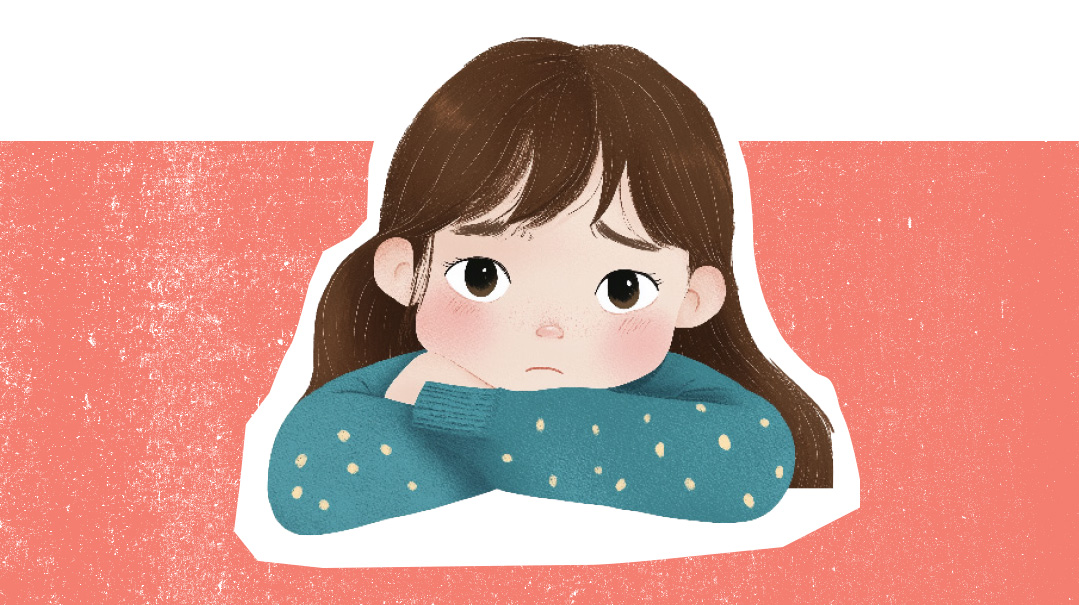A Time for War
| October 24, 2023How to keep calm, support our kids, and find compassion for ourselves

A Time for War
Zipora Schuck
The pasuk in Koheles tells us: For everything there is a season and a time. And there is eis milchamah, a time for war.
As parents, it’s our responsibility to shepherd our children through the minutiae of day-to-day living, as well as major life events. Now, we’re tasked with helping our children process and cope during this terrible war.
Obviously, a single article cannot provide comprehensive guidance, and many variables, including your location, your children’s ages, and their access to media, will impact how you speak to and support your children. There are wonderful resources available from organizations such as Ohel, Chai Lifeline, and Simha Health, as well as community-based mental health professionals who are sharing their expertise.
First and foremost is to take care of yourself. You cannot pour from an empty pitcher. Recognize that any feelings you may be experiencing (or the lack of them), are normal reactions to the horrors of recent events. As much as you can, try to continue with activities of daily life and basic self-care. Exercise careful boundaries around news exposure. As children take their lead from adults, let’s model a sense of calmness and routine as much as possible.
You can support your children by moving through the following categories:
Listen. Carve out ample time to have these conversations. Some will be intentional and focused, while others will be alongside regular daily activities. Always begin with finding out what your kids already know, and be prepared to clarify and share factual information that is age and developmentally appropriate, while at the same time dispelling rumors. Children should be able to trust that their parents will answer their questions honestly.
Talk. Children are not usually satisfied with a one-and-done conversation. Your increased availability to talk, play, or just be physically present and affectionate can be calming. Some children will be very focused on the details, discussing and talking it through, while others will use their energy to distract themselves. These are all valid ways to experience big feelings.
Validate. While validating children’s fears and feelings, don’t hesitate to weave in divrei bitachon. Share how your daas Torah and hashkafah have helped you process what’s happening.
We aren’t meant to know the answer to every question. Sometimes the best response is that the question is a hard one with no easy answer. Follow up by seeking out others who can help you formulate a thoughtful response. Some questions are answered by explaining that we don’t always understand why certain things happen, but that Hashem is running the world.
Reassure. Reassure children as realistically as you can. Very young children not living in Eretz Yisrael need to be told that the war is very far away and will not reach them. Older children can be reassured that Israel is doing all the hishtadlus necessary to fight successfully. For those children with relatives living in Eretz Yisrael, you can explain that every family has a safety plan including bomb shelters and increased security presence.
Children also take comfort in knowing how connected Klal Yisrael is. Share how so many organizations are working around the clock to help everyone affected and how Yidden worldwide are working to garner zechusim.
Sudden behavior changes such as difficulty sleeping or nightmares; regressions such as bedwetting or separation anxiety; or increased distress, irritability, or crying may indicate that your child might require additional or different support to process what is happening.
Action. Sometimes action is what helps a person regain a sense of control amid the chaos. While the soldiers fight on the frontlines, each of us can find our calling as well. Klal Yisrael has stepped up with an outpouring of increased Torah and tefillah, Tehillim, and a multitude of chesed opportunities. Any initiative helps our children feel that they are doing something as well.
Sometimes relaxation and grounding techniques can relieve some of the stress. There are simple ones even children can do. You can try breathwork, such as smelling a flower (inhalation through the nose) and blowing out a candle (exhalation from the mouth); creation of a somatic toolbox, with things children choose that help them relax, such as items they can feel, smell, taste, and hear; and progressive muscle relaxation (tensing or clenching a large muscle group together, as tightly as a pretzel rod, and then relaxing as loosely a cooked noodle).
May we merit to soon reach the eis shalom.
Zipora Schuck MA. MS. is a NYS school psychologist and educational consultant for many schools in the NY/NJ area. She works with students, teachers, principals, and parents to help children be successful.
Abnormal Situation, Normal Reaction
Abby Delouya, RMFT-CCC, CPTT
Before I list ideas that can help you feel less anxious, less concerned, and less pain, I need to preface by saying that I don’t know who is reading this, or what personal stories and pain you are holding. So I’ll humbly share some thoughts, but know that I am here, along with so many others, holding and feeling along with great pain, shock, sadness, anger, fear, and worry.
A colleague reminded me of Viktor Frankl’s famous quote: “An abnormal reaction to an abnormal situation is normal.” Everyone will have their range of responses during these difficult times, and they’re all valid. Some predictable reactions to the abnormal horror we’re experiencing are:
Increased emotionality, including feelings of grief, rage, fear, and, helplessness.
Feeling uncertainty and loss of personal safety.
Changes in physical behaviors, including sleep, eating, and exercise.
Preoccupation with what did happen and with what may happen.
Numbing and/or an inability to connect to events and feelings.
Habitually checking the news/statuses to the point where it’s very distracting.
We can be compassionate toward ourselves and understand that this is how we are dealing right now. We can also try to mitigate some of these uncomfortable feelings through different ways of processing. This might look like:
Routine and structure: Establishing a routine — even (or especially) in the midst of unpredictability — can provide a sense of stability, which reduces anxiety. Try scheduling regular meal times, exercise, or designated periods for relaxation.
Social support: Connecting with others who are experiencing similar challenges can be a powerful way to manage anxiety and fear.
Art and expression: Creative activities can serve as an outlet, helping to process difficult experiences and feelings.
Self-care practices: Sleep is really, really important for emotional stability and regulation. Try not to look at your phone or the news right before bed. Aside from the light emitted by the phone, it’s very harmful to go to sleep after seeing painful and disturbing news. Try to create a sanctuary in the day when your brain, heart, and neshamah can take some space from processing such pain.
Read the news as little as possible: If you must keep up to date, rely on news sources that avoid horrific images and descriptions.
Mindfulness and mediation: These techniques help people stay in the moment, even for just a few minutes, which creates some psychological distance and even momentary respite from pain and fear.
Prayer and emunah: Davening, listening to shiurim, and building emunah are all ways to connect to Hashem’s Ultimate Good, and effectively reduce anxiety and increase feelings of hope and comfort.
Abby Delouya, RMFT-CCC, CPTT is a licensed marriage and individual therapist with a specialty in trauma and addiction.
Struggling but Managing
Hadassah Eventsur
During this challenging time, most of us will not be functioning at our optimal level. Wherever you are on the continuum of grief, it’s important to be compassionate to yourself.
Here are some tips for trying to manage while faced with so much overwhelm:
Keep your focus on basic function. For example, “I will have clean clothes available daily for myself and my family,” as opposed to pressuring yourself to fold all the laundry. Keep in mind that you are not meant to care for your home, your home is meant to care for you. Try to avoid feeling defeated if your home isn’t running as smoothly as you would like it to. When you are struggling, a functional home is a perfect home.
Minimize steps in your daily tasks to avoid overwhelm. Think purchasing prepared foods, using precut vegetables, or serving sandwiches. If you and family are nourished, you have achieved your goal.
Experts agree that spending too much time focusing on news and disturbing videos can negatively impact your mental health. But many of us aren’t aware of how much an article, post, or reel that displays “perfect” kitchens, recipes, or clothing can leave us feeling inadequate. Take note of how you’re impacted emotionally by what you watch or read.
Relinquish guilt about struggling with seemingly trivial issues. Of course tragedy can give us perspective, but we are still human beings, and our daily challenges do not go away in the face of abundant suffering. Continue to address your personal struggles with dignity and self-compassion.
Foster relationships where there is reciprocal support, positivity, and the emotional safety to share big feelings. Attaching yourself to supportive and affirming people will help with the healing process.
Hadassah Eventsur, MS, OTR/L is a licensed occupational therapist with over 20 years of experience, and a certified life coach in the Baltimore, MD. area.
(Originally featured in Family First, Issue 865)
Oops! We could not locate your form.







